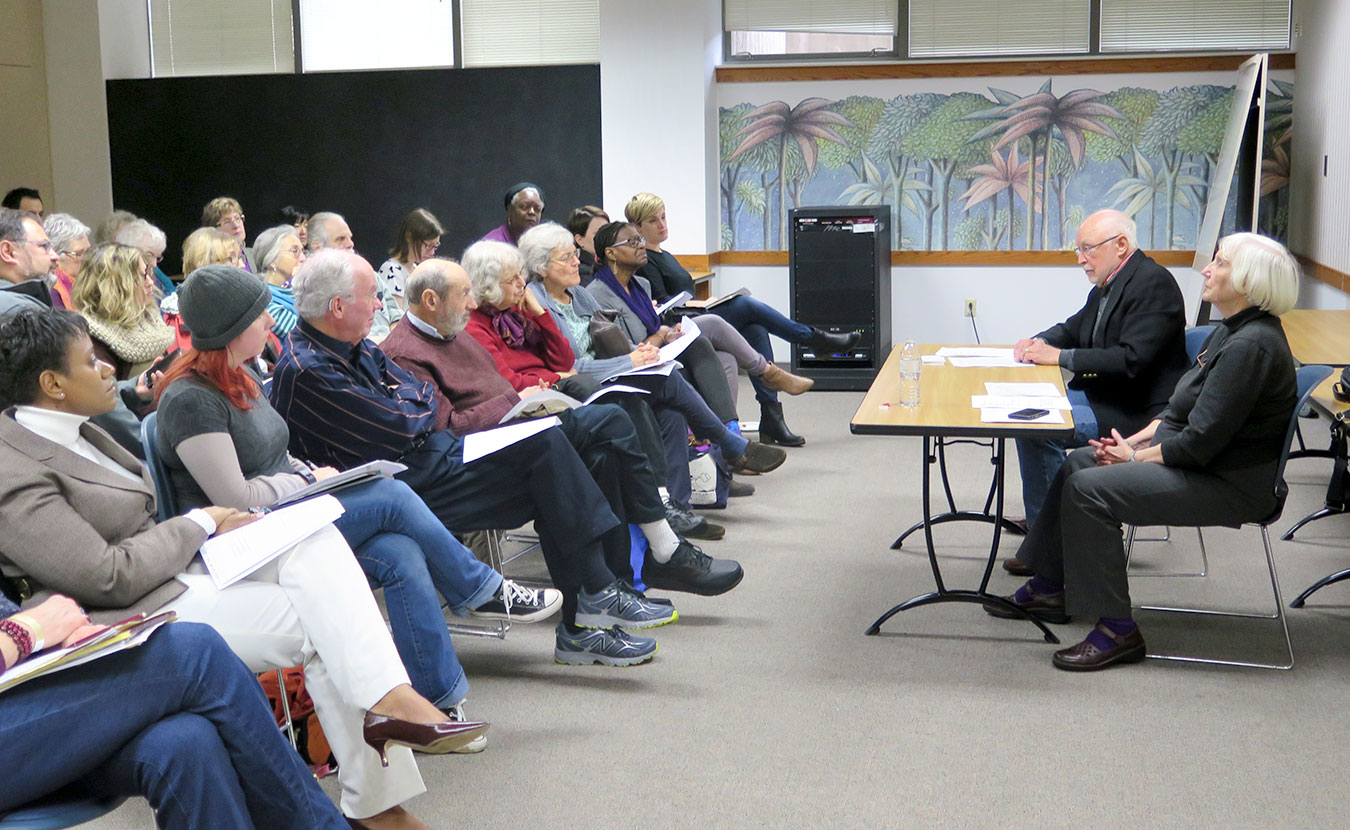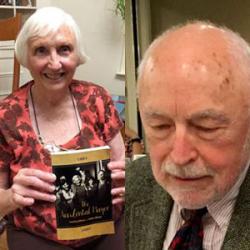As the presidential inauguration loomed closer and closer, a group of folks in Bloomington channeled their energy into Inaugurate the Revolution as an act of resistance to the incoming administration. Event organizers curated panels for the one-day conference in order to unite the community in a day of activism and engagement. While options included everything from movie screenings and art workshops to hearing from marginalized communities and learning more about a wide variety of societal problems, we’ve put together four stories showing the many issues people in our town are working on — and what you can do to help out. This is our third, and final, story in the series, involving the issues (and solutions) regarding democratic reforms by Tomi and Jim Allison. Our first story was about the importance of media literacy by Elijah Pouges. Our second story was on indigenous activism by Laura Martinez.
Hoosiers can help make our elections more representative and more attractive to stay-at-home voters by dodging the Electoral College, slaying the gerrymander, and changing winner-take-all to winner-take-some.
Popular vote: ‘Direct vote of ordinary citizens’
Many are surprised to learn that when we imagine we’re voting for president, the Constitution says we’re actually voting for the politicos who run the candidate’s party in our state. In Indiana, where it’s winner-take-all, the victorious politicos get to enroll all 11 of our electors in the nation’s Electoral College, whose 538 members vote in the real presidential election — decided by a simple majority, 270. In 2016, our electors included such persons as the Hamilton County Republican Party Chair. Indiana gets 11 such electors, because we have two U.S. senators by virtue of statehood, and nine representatives by virtue of population.
In 1787, the founders created the Electoral College because they were loathe to entrust such a powerful office as president to the direct vote of ordinary citizens. Ordinary citizens, in a bloody, armed debtors’ rebellion, had recently marched to compel state government to help them through an economic disaster reminiscent of ours in 2008. The founders designed the Senate similarly, with senators chosen by state legislatures (direct vote for senators came in a more progressive age, with the 17th Amendment of 1913). But they did provide direct vote for representatives, largely to mollify the masses whose approval might help the proposed Constitution to survive the hard public scrutiny of state ratifying conventions.
Five times the Electoral College has nullified the popular vote, most recently when Clinton’s popular margin approached three million. But states commanding 270 Electoral College votes can simply sidestep the college by pledging their electors to the candidate with the most popular votes nationwide. Nearly a dozen states have already done so, and Indiana could join them by approving legislation (Senate Bill 372) introduced by state Senator Mark Stoops (Dem., District 40).
Gerrymandering: ‘Political extremism, dictatorial government, and legislative gridlock’
Hoosiers’ most urgent problem is gerrymandering, the drawing of district maps so as to favor one party over another. Gerrymandering has produced safe districts that engender political extremism, dictatorial government, and legislative gridlock. It results from political partisanship in the redistricting that follows each national census which occurs every ten years, the most-recent being in 2010. Gerrymandering doesn’t happen in Iowa, whose redistricting commissions are strictly nonpartisan.
The League of Women Voters (LWV) and Common Cause are leading state and local efforts toward fair redistricting next time around. Public pressure is essential now and in the next few months. You can help by asking Kate Cruikshank, of LWV, to put you on an alert list for local action.
Every vote counts: Rank-choice voting system v. winner take all
Finally, most U.S. elections use a winner-take-all formula that practically bars third parties from political office. More inclusive is the rank-choice voting system, which is structured mathematically to provide both majority rule and representation for minority groups proportional to their actual strength. In the rank-choice system, voters choose not only their favorite candidate but also their second, third, and fourth choices or more, depending on how many candidates are running for an office. When a candidate reaches a winning number of votes, their excess votes, and the votes of each loser, are re-assigned to second-choice candidates until each seat is filled. More people would be encouraged to vote if they could rank third- and fourth-party candidates higher than other candidates without thinking their votes are wasted.
Last November, Maine passed a referendum for rank-choice voting in its next elections for governor, legislature, and Congress — the nation’s first statewide rank-choice elections. We can join this democratic movement by supporting Senator Stoops’ Senate Bill 529, which would let Indiana communities use rank-choice voting in local elections at their discretion.
Chances like this don’t come very often. We hope you will seize the day by getting in touch with Senator Stoops and/or Kate Cruikshank to offer your encouragement and help in moving the necessary measures concerning the Electoral College, re-districting, and rank-choice voting through the legislature.




No Replies to "Democratic Reforms Needed for Your Vote to Count"